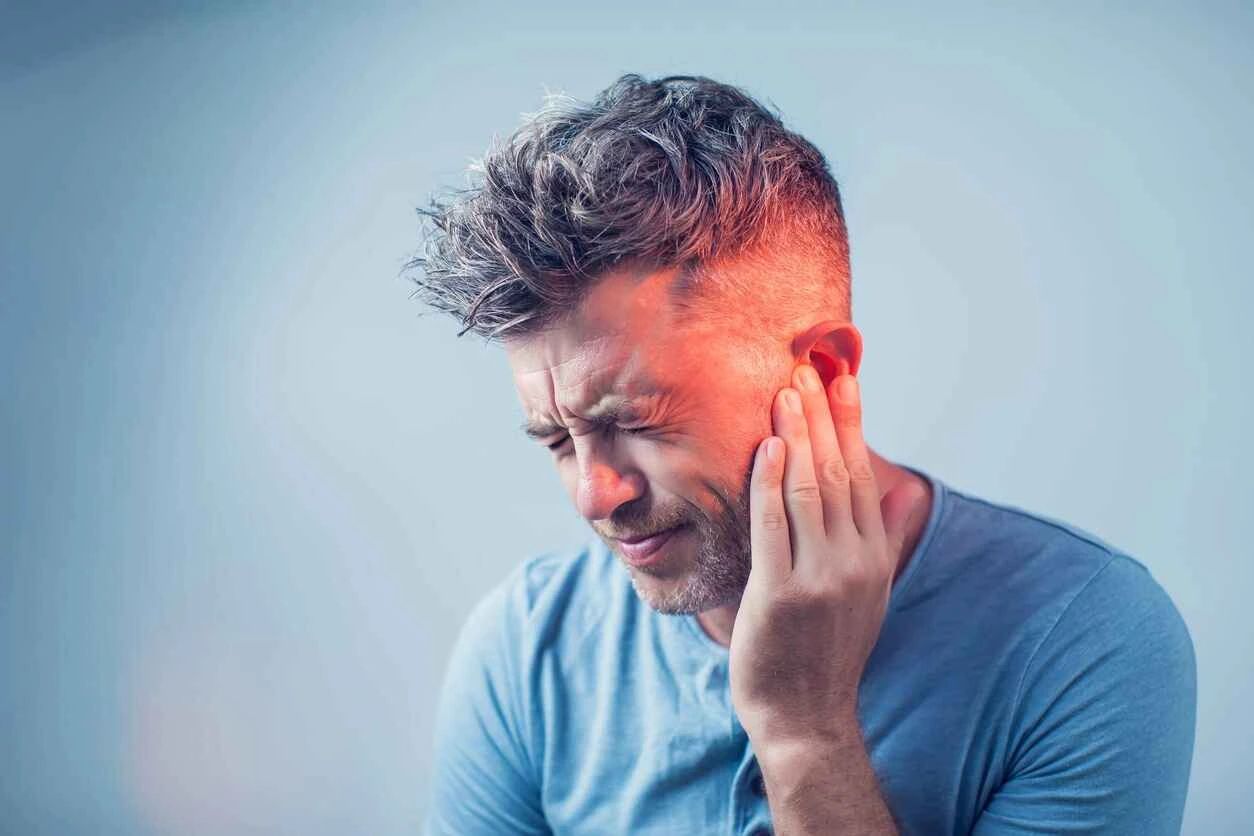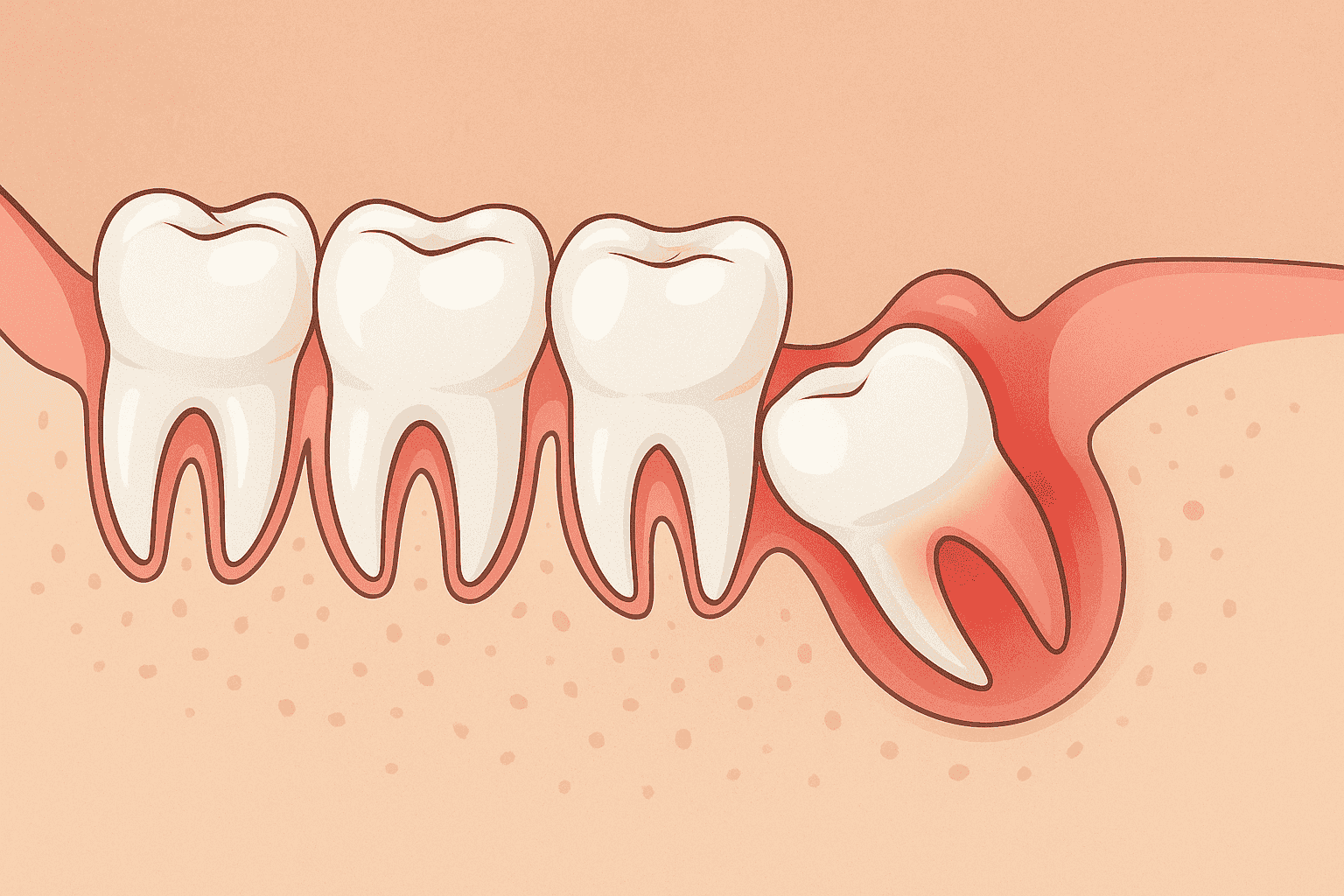


Imagine this: you’re enjoying your favorite meal, when suddenly, a sharp, throbbing pain shoots through the back of your jaw and… your ear starts hurting too. You might be thinking, “Did I catch an ear infection?” But what if the culprit is actually your wisdom teeth? Many people don’t realize that problems with their third molars can cause ear pain, jaw discomfort, and even headaches. In this guide, we’ll walk you through everything you need to know about wisdom teeth and their surprising link to ear pain.
Wisdom teeth, also called third molars, are the last set of teeth to emerge—usually between ages 17 and 25. For some, they grow in perfectly straight, fitting snugly into the back of the mouth. But for many, there isn’t enough room, which can lead to impacted teeth, infections, and pain. Since they sit near nerves and jaw muscles, any complications can radiate discomfort to your ear, making it hard to pinpoint the source.

Ear pain related to wisdom teeth is surprisingly common. The reason lies in the close relationship between the jawbone, temporomandibular joint (TMJ), and nerves. When a wisdom tooth becomes impacted or infected, it can press against surrounding tissues, inflaming nerves that connect to the ear. This is why some patients report an earache without any actual ear infection. In other cases, swelling in the jaw or gum tissue can create pressure that radiates upward, causing a dull, persistent ache in the ear.
Several factors can make you more prone to wisdom tooth-related ear pain:

Woman holding her jaw in pain from wisdom teeth discomfort
Not all wisdom tooth problems immediately trigger ear pain. Keep an eye out for:
Early recognition is key. If you notice any combination of these symptoms, it’s wise to consult a dentist before the pain worsens.
When you visit a dentist, they’ll first review your symptoms and medical history. A physical exam of your teeth, gums, and jaw will follow. Often, an X-ray or panoramic imaging is used to check the position of your wisdom teeth and assess whether they are impacted, infected, or causing pressure on surrounding nerves. In some cases, your dentist may also evaluate your temporomandibular joint (TMJ) to rule out joint-related causes of ear pain.
While professional care is essential, some at-home strategies can help reduce discomfort:
Remember, at-home remedies only manage pain temporarily. Persistent or severe pain should always be evaluated by a dentist.
Not everyone will have wisdom tooth complications, but these steps reduce your risk:
Myth 1: Wisdom teeth always cause pain.
Fact: Many people have wisdom teeth that erupt without any issues. Pain usually indicates impaction or infection.
Myth 2: Ear pain is always an ear infection.
Fact: Jaw and tooth problems, including wisdom teeth, can radiate pain to the ear without an actual ear infection.
Myth 3: You should wait until wisdom teeth fully erupt before taking action.
Fact: Early evaluation can prevent complicated extractions and long-term discomfort.
Q: Can wisdom teeth cause jaw pain as well as ear pain?
A: Yes, impacted or infected wisdom teeth can press on surrounding jaw muscles and nerves, leading to discomfort that often radiates to the ear.
Q: How do I know if my earache is caused by wisdom teeth?
A: If the ear pain is accompanied by jaw swelling, gum tenderness near the back molars, or difficulty opening your mouth, it could be related to your wisdom teeth. A dentist can confirm this with an exam and X-ray.
Q: Will removing wisdom teeth relieve ear pain?
A: In most cases, yes. Extracting problematic wisdom teeth removes the source of pressure and inflammation, which usually eliminates associated ear pain.
Q: Are antibiotics enough to treat wisdom tooth-related ear pain?
A: Antibiotics can help control infection temporarily but don’t resolve the underlying problem if the tooth is impacted. Extraction or professional dental treatment is typically required.
Q: How long after wisdom tooth removal does ear pain stop?
A: Most patients notice significant relief within a few days to a week as inflammation subsides. Full healing can take a few weeks.
Q: Can wisdom teeth cause headaches too?
A: Yes. Pressure from impacted wisdom teeth or jaw strain can trigger tension-type headaches or localized pain in the temples.
If you experience severe pain, swelling, fever, or difficulty swallowing, contact a dentist immediately. These could be signs of a serious infection that needs prompt treatment.
If your wisdom teeth are causing ear pain, jaw discomfort, or persistent toothache, don’t wait for the pain to worsen. Schedule a consultation with Smiles By Design San Diego, consistently rated 5 out of 5 stars for exceptional dental care.
Address: 15373 Innovation Drive #110, San Diego, CA 92128
Phone: 858-485-5552
Our experienced team will assess your wisdom teeth, provide expert treatment options, and help you find lasting relief—so you can enjoy your meals and daily life pain-free.